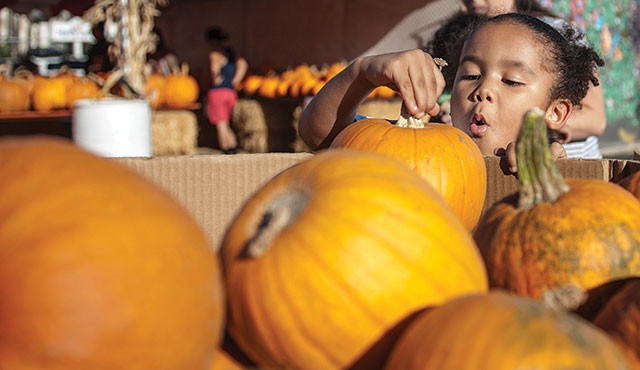Every year, Catholic parents debate the question: Is Halloween a satanic holiday or merely a secular one?
Author Scott P. Richert, writing on August 26 on thoughtco.com, goes on to ask some additional questions: Should Catholic children dress up like ghosts and goblins, vampires and demons? Is it good for children to be scared?
Most well-intentioned parents and authorities fail to acknowledge that Halloween has its roots in a Christian celebration that’s almost 1,300 years old, he says.
Indeed, Bishop David Konderla of Tulsa declares that Halloween’s Christian origin should inspire Catholics to remember our mortality and our redemption in Christ.
“In contrast to popular culture’s observance of Halloween, even the customary appeal to the ‘frightful’ has a devotional meaning in the Catholic tradition,” Bishop Konderla notes. “Props such as skulls and scythes have historically recalled our mortality, reminding us to be holy because we are destined for judgment.”
He cites Hebrews 9:27 and Revelation 14:15: “Visible symbols of death represent a reminder of the last things — death, judgment, heaven and hell.”
The name Halloween is derived from the archaic English phrase, All Hallow’s Evening, referring to the Eve of All Saints Day. Since All Saints celebrations can begin with evening prayer the night before, Halloween is the feast’s earliest possible celebration.
As Halloween, like Christmas, has become more commercialized, pre-made costumes, decorations and candy have become widely available and the Christian origins of the day all but forgotten, Richert says.
“The rise of horror films, and especially the slasher films of the late 70s and 80s, contributed to Halloween’s bad reputation,” Richert adds, “as did the claims of satanists and wiccans, who created a mythology in which Halloween had once been their festival, co-opted later by Christians.”
Ironically, he notes, one of the most popular Christian alternatives to celebrating Halloween is a secular Harvest Festival, which has more in common with the Celtic Samhain than it does with the Catholic All Saints Day. “There’s nothing wrong with celebrating the harvest,” he writes, “but there’s no need to strip such a celebration of connections with the Christian liturgical calendar.”
Just because Halloween has become hyper-commercialized is no reason for Catholics to avoid celebrating, writes Gretchen Filz in “A Catholic’s Guide to Halloween,” published by catholiccompany.com.
Filz notes that Halloween is a great time “to reflect on Christ’s triumph over sin, death, and satan; to meditate on our own mortality and duties to God; to shun sin and the devil; to give honor to the saints in heaven; and to pray for the souls of the faithful departed in purgatory. And, of course, to have fun with joyful feasting and merriment.”
The true joy of Halloween for Catholics is Christ’s victory over death and the invitation He offers us to share in that triumph, writes Michelle Arnold in “Why Catholics Should Embrace Halloween,” at catholic.com.
“If we take back Halloween as a Christian holiday, if we are unafraid to confront the principalities and powers that struggle to wrest away our victory and our triumph in Christ, then those who seek to do so will realize that they cannot steal our Halloween joy,” Arnold says.
“Never forget that the raison d’être of Halloween is holy mockery of the devil,” she adds. “As St. Thomas More observed of the devil, ‘The proud spirit cannot endure to be mocked.’”

